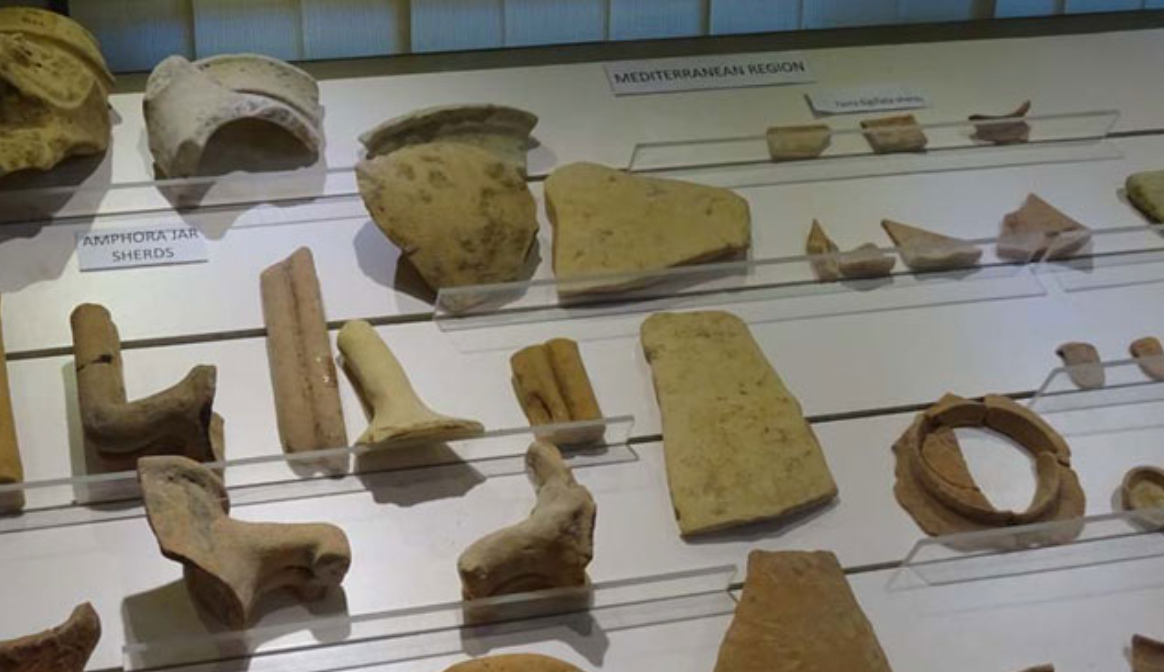
Birgitta Hoffmann
Everybody knows the Silkroad. Originally, we thought it went overland from Xi’an to the Mediterranean. But this is only one of many, many routes that were used since about 6000 BC to facilitate long-distance exchange between Africa, Asia (including the Western Pacific) and Europe. Today we know these routes were a huge network, forever changing and adapting to political and climate change, but always driven by the need to carry goods and ideas from one end of the world to the other.
One of the biggest parts of this network is the Maritime Routes and the Indian Ocean and in the middle of it, the Indian Subcontinent is a crucial turntable for this trade.
According to the ancient sources the biggest harbour in the South of India, in the area now known as Kerala was Muziris or Muchiri in the Tamil texts. During the Roman Period goods were brought here from the West and fortunes could be made by bringing Indian produce from spices to Cotton to Gemstone back. in 2009 the Archaeologists found this site at a place known as Pattanam, which means the harbour/port. The picture shows some of the amphora found at the site, but I also could have shown you pictures of gemstones and the remains of a wharf and store buildings.

Pattanam is probably the best-known of the sites that were discovered in the last 20 years of research into the Maritime Silkroad in India and I really look forward to talking about these new discoveries in my Course on the Silkroad trade in the Indian Ocean on Thursdays for MANCENT
The course is online and recorded and open to international enrolment via Eventbrite and thanks to the recordings available at a time convenient for you.








 Although much, if not all, of Egyptian art was magical this course will examine images and objects created specifically for magical practice. A broad definition of magic will be used; which is, any activity that seeks to obtain its goal outside the natural laws of cause and effect, will be deemed magical.
Although much, if not all, of Egyptian art was magical this course will examine images and objects created specifically for magical practice. A broad definition of magic will be used; which is, any activity that seeks to obtain its goal outside the natural laws of cause and effect, will be deemed magical.